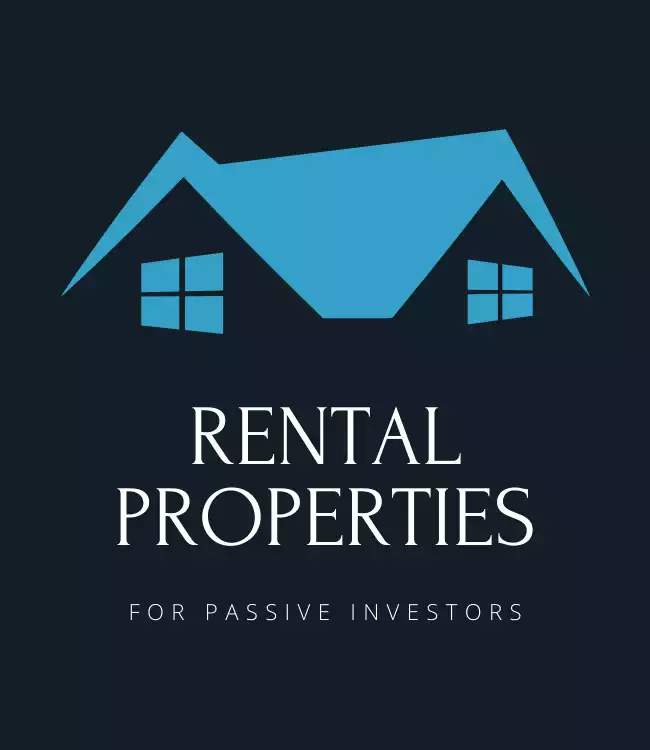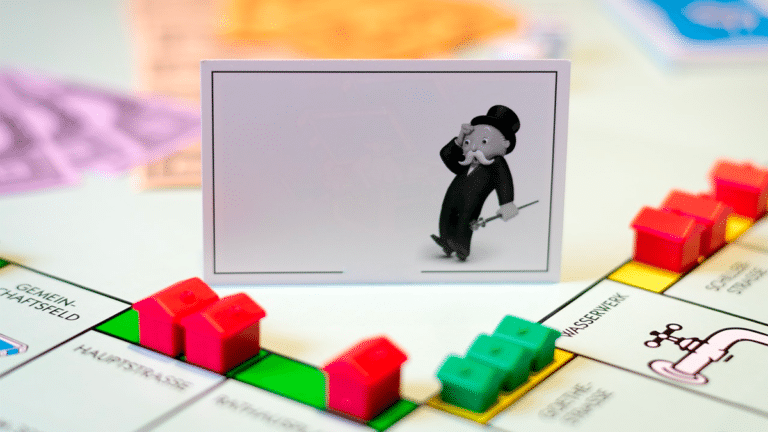Regardless of your familiarity with real estate investing, you’ve perhaps considered a venture into it. We’ve all seen the fix and flip shows, the only way to get wealthy is to do that. Or is it? This article shows you how to make money in real estate right now.
It’s true though! Following decades of social change, industrial development, and economic fluctuations, real estate continues to be one of the most reliable investment options.
By conducting sound research and taking advantage of favorable market conditions, you can learn how to make money in real estate.
Below you will find several prominent real estate tips to put you on the path to financial freedom.
1. Know Your Investment Strategy
Before laying your cash on the table, know what kind of investment property you’re buying. Is it a multi-family or single-family home? Would you prefer investing in commercial real estate? Each of these asset classes carries varying degrees of risk and return.
What’s your time horizon? How soon will you need the money? If it’s a short-term investment, consider alternatives (having money locked up in a long-term
2. Research Your Real Estate Market
Research is essential. But, some people take planning and consideration to such an extreme that it becomes a stumbling block. Analysis paralysis is your number one enemy in real estate.
At some point, you have to bite the bullet and make a purchase when the numbers make sense. You should be able to estimate the cash flow of a property so that you know when it’s the right time to buy.
Cash flow is all about the amount of cash you get from the investment monthly.
To make this calculation, consider all the expenses and payments associated with operating the property. With a residential
The money you make from rent covers taxes, insurance, payments, repairs, updates, and any other costs associated with property ownership.
A good real estate investor takes into account all the costs they will incur by owning the property, and weigh them against the potential profits. You may be surprised by just how much it costs to run the property.
In some cases, investors purchase properties on which they can barely break even after expenses.
Calculating your cash flow is a simple equation: subtract your total expenses from your total income. The resulting figure is the amount of money you will generate from your property.
Cash Flow Example
Here is a monthly cash flow calculation example on a property you rent for $1,600 a month:
- Mortgage = $600
- Taxes = $200
- Insurance = $50
- Reserve for repairs = $50
- Property Management = $100
Your cash flow in this example is $600. This means that you’re building up reserves for future major expenses. And, you can also withstand a future interest rate increase should one come your way.
After you have this number, you can calculate your annual return on investment. This is a percentage rate that tells you how much of your investment you get back annually. You can determine this number by taking your annual cash flow and dividing it by your initial investment.
In the above example, your annual cash flow is $7,200 assuming you purchased a $300,000 property with a 20%—or $60,000— down payment.
Dividing your cash flow by your initial investment reveals your annual return on investment is 12 percent. Not bad considering the average stock market return is 7-10%.
In this example, your return on investment is exceptional. Anything above 15 percent is usually considered to be a sound investment. If you find a property that can get you to an ROI of 15 percent or above, seize the opportunity and buy.
Always be asking yourself if the investment has positive cash flow.
Tweet ThisThere are now online marketplaces for turnkey rental properties that do a lot of the math for you.
But since you’re already here, check out the tool Andrew built, Investable, to help you determine your potential
Use our tool to find out if you're getting a good deal. Know beforehand what your costs look like and whether your investment will generate cash flow. Just enter an address and it does the math for you. Don't guess the value of your investment, calculate it.
And if you’d like to see Andrew’s approach to turnkey property investing, visit his course Rental Properties for Passive Investors.
He walks you through his exact system for finding (and closing) the right property, what he considers a great deal, and the foundations of a successful rental business.
Our proven, data-driven approach to building a portfolio of income-producing rental properties that perform in the long-term.
3. Buy and Hold
You’ve probably heard about people who invested in properties or stocks and then lost it all when the economy hit a rough patch. What you might not hear so much about is the fact that these same people may have been able to recoup their losses if they had held out a little longer.
You only lose money when you sell. And, the losses many people suffer in real estate is because they sell at the wrong time.
That’s why buy and hold as a real estate investment strategy is so powerful.
When you pull out of the market at the first sign of a downturn, you lock in your losses. Buy and hold lets you ride out economic shifts. This is essential.
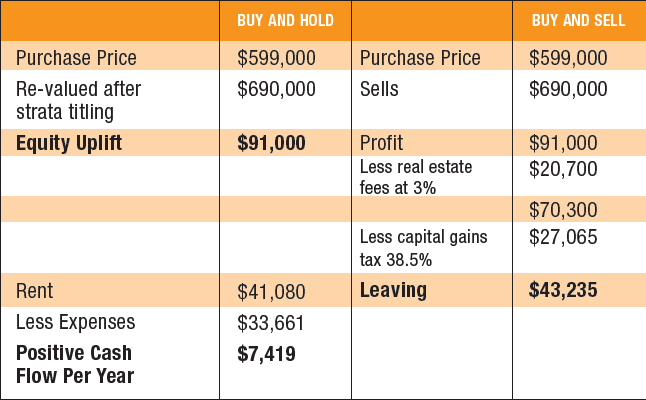
Source: Vizion Group
When you purchase real estate, you should do so with a long-term mindset. As you can see from the above example, buy and hold is an exceptional long-term wealth creation strategy.
Property can effectively diversify your portfolio and earn you short-term profits in the form of cash flow. This is in addition to sustained appreciation over time.
Our proven, data-driven approach to building a portfolio of income-producing rental properties that perform in the long-term.
Real Estate Property Always Appreciates
Despite the ups and downs of the market, real estate always has an upward trend. Thus, your investment will likely appreciate in value the longer you hold it.
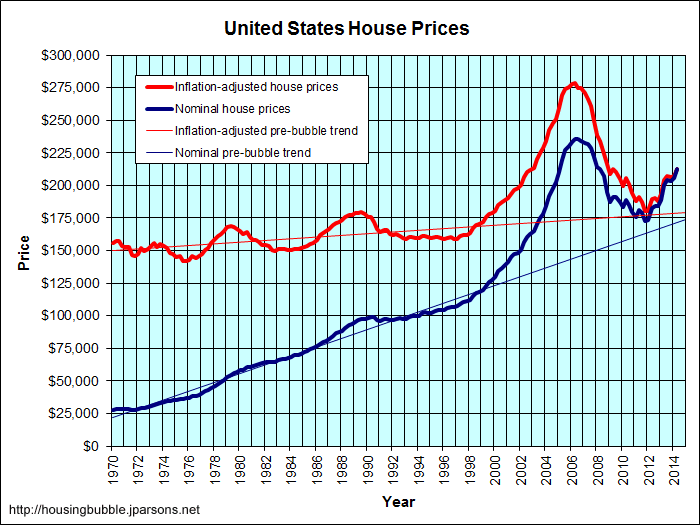
Source: JParsons.net
One of the most significant benefits of buying and holding real estate is the fact that it gives you a stable income. As long as you keep your rental properties occupied, you can depend on a consistent, pre-determined source of revenue.
A long-term buy and hold strategy gives you ongoing cash flow, yearly tax advantages, and long-term appreciation. As Gary Keller says:
It’s like compound interest with a turbocharger.
This allows you to supplement your income or completely support yourself. As you build equity in your property, you can tap into financing to purchase more real estate and further build your rental income.
4. Get Organized
If you are not on top of things as a property owner, you are going to have to deal with all sorts of negative consequences. Late payments and bills, tenants who can’t rely on you, deals that fall through, and more.
Owning and managing a
Find A System That Works
We are all wired differently, and the organizational system that works for somebody else might not work for you. Try out some different organization systems. Including physical filing cabinets and digital organizational software.
My favorite tool is Google Drive, and I scan and e-file everything. Stick with whichever option you like best. As long as it works, it doesn’t really matter.
Stay Informed
Keep your ear to the ground so that you are always informed about what’s going on in your local market. Set up a daily Google Alert.
Changes in rental rates, demand, and property value will affect how you operate your property. Doing some research and staying up-to-date about what’s going on in your local market allows you to make the best decisions possible.
Get Help
There is nothing wrong with getting a little help by hiring a contractor or assistant. Even a part-time employee can make a huge difference when it comes to managing your workload.
When you’re first starting out, this may not be an option for you. But as you grow, you may need someone to take calls, knock on doors, organize maintenance, and so on.
You can delegate record-keeping and other organizational tasks to a contractor you found on Upwork so that you can focus on the big picture.
5. Always Analyze Rental Properties
Although you’ll be pulling the trigger rarely, you still need to pull it. A constant analysis is a key to successful real estate investment.
You must carefully weigh all the numbers and factors to be certain that you are making a purchase that will be sufficiently profitable to you in the long term. Start by thinking about income, property appreciation, and factors specific to your local market.
Is there a new employer coming into town, a new transportation system, or new commercial and retails units? Know where to find the best long-term investment opportunities. And, always be analyzing deals—this is the only way you’ll become a pro-investor.
Cash Flow Is a Great Start
When a new deal comes your way, you should start by calculating your cash flow. Next, take into account projected property appreciation and other factors that might influence the long-term value of the property in which you invest.
You should know the average appreciation over time in your market, so start doing your projections!
The national average appreciation rate was 5.4% between 1963 and 2008.
There’s no way for you to be absolutely certain about the profitability of a real estate investment. But weighing it carefully will give you more confidence about your purchase.
When a good deal comes your way, it’s important that you are prepared to execute on it. Work with an agent who specializes in real estate investments. Make sure they send you deals regularly for your analysis.
Have an analysis system. If a property adds up after initial analysis, go visit. After you visit, if you like the property and it checks all your boxes, send in your appraiser.
The reality is that the dream opportunity is not going to fall into your lap. You have to put forth the effort to seek it out.
Analyze your opportunities and pull the trigger when—and only when—the time is right. Taking this approach means you’ll quickly find how to make money in real estate in the most effective way.
6. Build Your Real Estate Team
A critical real estate tip to remember when you are trying to learn how to make money in real estate is teamwork. You cannot do it all on your own. Surrounding yourself with a supportive team increases your chances of success.
Nothing happens in isolation. Real estate investing is a team sport.
Start by determining what kind of help you need. Enlist the help of a real estate agent to help you identify investment opportunities and become familiar with the local market.
Find a lender to help you finance your investment. Work with a tax professional to help keep all of your financial records in order. And, a property manager can help you with the day-to-day operations of your real estate investment.
Here is a breakdown of my current real estate team—and we are killing it!
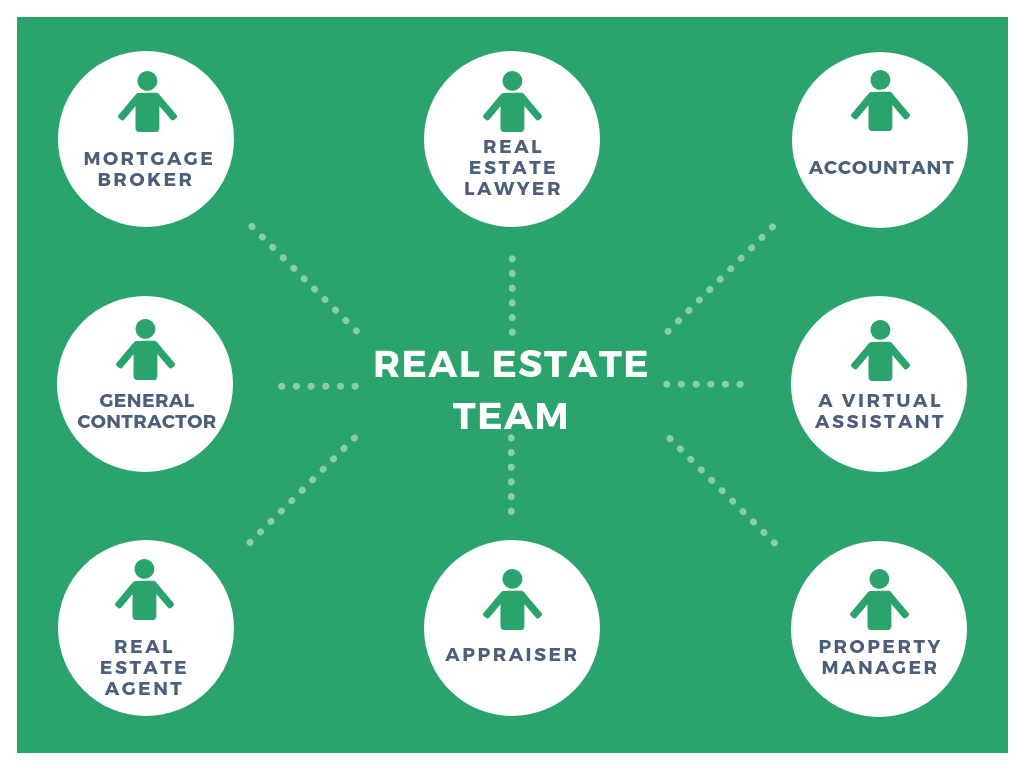
These key players will help make your venture into real estate investing a successful one. They’ll also help you make great investment choices that pay off in the long term.
Final Thoughts
Of all of the real estate tips, the most important is to conduct your due diligence.
Always err on the side of being over-informed about the market where you are investing and the details of the investments you’re making.
Educate yourself about every aspect of the real estate investment process. Read books, listen to podcasts, talk to other investors, and go to meetups. Always be analyzing deals.
If you commit to real estate investing and take calculated risks, you have an excellent chance at generating a passive income stream (and potentially make a lot of money).
